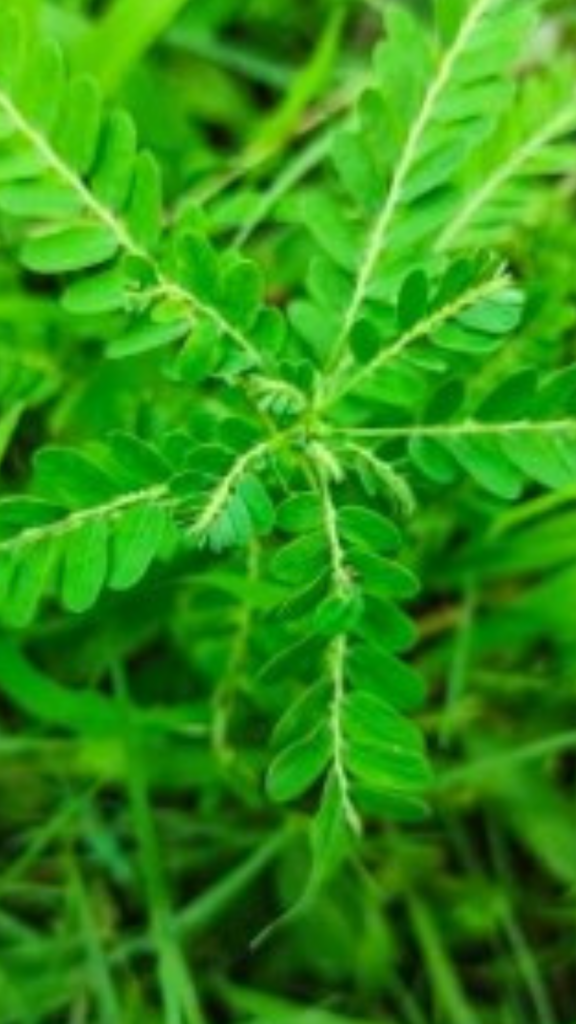When it comes to health, the plant kingdom has a lot to offer. Long before the advent of modern medicine, people identified plants for their health benefits and traditional medicine systems continued to use them.
Phyllanthus nuri is one such plant with a very long history of use. It is commonly used by Ayurvedic practitioners as a treatment for liver conditions and a host of other common conditions.
What is Phyllanthus niruri?
Phyllanthus niruri belongs to the Phyllanthus genus of plants which also includes Phyllanthus emblica. The plant is commonly known by various other names including Windstorm, Stonebreaker, Lafflower and Seed-under-leaf.
The plant grows in many tropical parts of the world as well as subtropical regions. Many parts of the plant including its leaves, root, and stems are used to make medicine available in the form of capsules, tinctures, and extracts. It is also commonly used to make a healthy tea or decoction.
The fresh leaves of the plant can also be applied topically as a poultice to treat rashes, sores, and other skin complaints.

Phyllanthus Niruri, also known as Chanca Piedra or Bhumyamalaki, is a medicinal plant widely recognized for its health benefits. It is often sought after for its medicinal uses, particularly in supporting liver health, aiding in kidney stone prevention, and promoting overall well-being. Many people are interested in learning the difference between Phyllanthus Amarus and Phyllanthus Niruri, as both species share similar properties. Additionally, those looking to incorporate this herb into their routine often search for information on how to prepare Phyllanthus Niruri tea. The plant is also available for purchase, with searches like “buy Phyllanthus Niruri” indicating its demand in herbal medicine markets.
Health Benefits of Phyllanthus
Windstorm has been traditionally used for hundreds of years to treat a variety of conditions including liver disease, kidney disease, and inflammation. A growing body of recent scientific research seems to support many of these traditional uses.
Here are some of the main potential health benefits of the plant:
Liver health
A number of studies have found that different species of Phyllanthus including Phyllanthus niruri and Phyllanthus emblica may have benefits for the liver by preventing hepatitis which protects against liver disease.
A study published in 2012 examined the hepatic effects of 11 species of phyllanthus. The researchers found that three species of phyllanthus – Phyllanthus emblica, indofischeri and polyphyllus – had a significant protective effect on liver cells.
The in vitro study found that extracts from the plant helped protect these cells or hepatocytes from oxidative damage when they were exposed to toxic hydrogen peroxide (1).
The results of these laboratory studies appear to have been confirmed by several animal studies. In 2006, a study on mice found that the antioxidant found in Phyllanthus niruri helped protect the liver from toxicity. (2)
A more recent animal study, published in 2017, added further support to these earlier findings. Researchers found that extracts from Phyllanthus niruri halted the development of non-alcoholic fatty liver disease – in mice and may also help treat atherosclerosis.
Both conditions are known to cause insulin resistance and the study found that the plant extracts helped reduce insulin resistance and the level of fatty acids present in the liver. In fact, the extract not only helped normalise liver enzyme levels but also eliminated liver tissue scarring.
See also 9 science-backed benefits of valerian root
Researchers have attributed these effects to the presence of phyllanthum – a polyphenol, unique to the plant. (3)
Hepatitis B
There have been claims that phyllanthus may also help against hepatitis B – a viral form of hepatitis that can lead to long-term liver damage and inflammation. Studies dating back to the 1990s have consistently indicated that extracts from this plant can help eliminate the disease and effectively treat people with this chronic infection. These lofty claims have been viewed with scepticism ever since chronic hepatitis B was deemed incurable.
Most of these studies have been criticised for including people with acute infections in their research. People recently infected with the acute form of hepatitis B usually recover spontaneously with about 90% experiencing complete remission without any treatment.
One study, published in 2010, looked at the effects of an herbal product containing Phyllanthus niruri and 6 other herbs. The researchers found that those treated with the herbal extract recovered faster than those in the control group. They also reported various side effects including diarrhoea and abdominal pain (4).
However, a review, published in 2011, concluded that the studies did not provide any conclusive evidence that phyllanthus was more effective than placebo in treating patients with chronic hepatitis B. (5)
While studies suggest that phyllanthus has certain benefits for the liver, claims that it can treat chronic hepatitis B are unproven.
Benefits of antioxidants
Antioxidants are extremely important for your health. They help protect us from disease caused by oxidative stress known as free radical damage. Antioxidants can protect cells and even reverse damage that has already occurred. By protecting cells, antioxidants can help protect against a wide range of diseases including serious illnesses such as heart disease and cancer.
According to one study, published in 2014, phyllanthus niruri leaf extract showed very strong antioxidant activity in vitro. (6)
This antioxidant activity is likely responsible for many of the plant’s potential health benefits.
Kidney stones
Phyllanthus niruri is renowned for its ability to treat kidney stones, naturally.
According to a paper published in 2010, a number of studies have consistently found that the herb is an excellent preventative treatment for kidney stones. (7)
Lithotripsy is a medical procedure that helps to break up any stones present in the urinary tract. According to research, grass is an effective treatment because the herb helps relax the ureters, after the stones have been broken up.